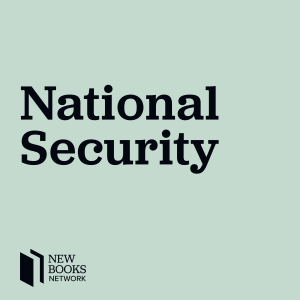
New Books in National Security
Science:Social Sciences

Nadine Strossen, “Hate: Why We Should Resist it With Free Speech, Not Censorship” (Oxford UP, 2020)
 2020-09-16
2020-09-16
Download
Right click and do "save link as"
The updated paperback edition of Hate: Why We Should Resist it With Free Speech, Not Censorship (Oxford University Press) dispels misunderstandings plaguing our perennial debates about "hate speech vs. free speech," showing that the First Amendment approach promotes free speech and democracy, equality, and societal harmony.
As "hate speech" has no generally accepted definition, we hear many incorrect assumptions that it is either absolutely unprotected or absolutely protected from censorship. Rather, U.S. law allows government to punish hateful or discriminatory speech in specific contexts when it directly causes imminent serious harm.
Yet, government may not punish such speech solely because its message is disfavored, disturbing, or vaguely feared to possibly contribute to some future harm. "Hate speech" censorship proponents stress the potential harms such speech might further: discrimination, violence, and psychic injuries. However, there has been little analysis of whether censorship effectively counters the feared injuries.
Citing evidence from many countries, this book shows that "hate speech" are at best ineffective and at worst counterproductive. Therefore, prominent social justice advocates worldwide maintain that the best way to resist hate and promote equality is not censorship, but rather, vigorous "counterspeech" and activism.
New York Law School professor Nadine Strossen, the immediate past President of the American Civil Liberties Union (1991-2008), is a leading expert and frequent speaker/media commentator on constitutional law and civil liberties, who has testified before Congress on multiple occasions.
Arya Hariharan is a lawyer in politics. She spends much of her time working on congressional investigations and addressing challenges to the rule of law. You can reach her via email or Twitter.
Learn more about your ad choices. Visit megaphone.fm/adchoices
view more
More Episodes
012345678910111213141516171819
Create your
podcast in
minutes
- Full-featured podcast site
- Unlimited storage and bandwidth
- Comprehensive podcast stats
- Distribute to Apple Podcasts, Spotify, and more
- Make money with your podcast
It is Free
- Privacy Policy
- Cookie Policy
- Terms of Use
- Consent Preferences
- Copyright © 2015-2024 Podbean.com





